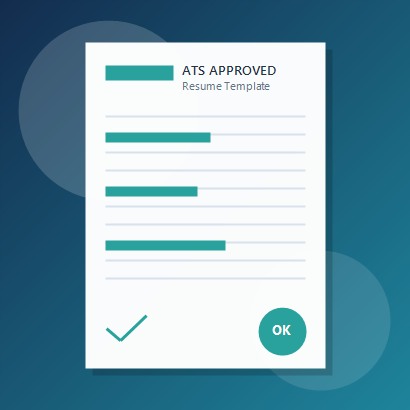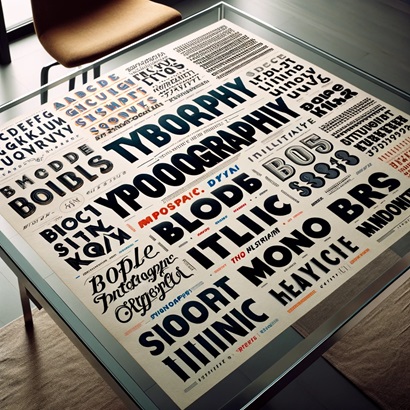International Resumes: Understanding Cultural Nuances
Resume Optimizer Pro Editorial Team
Updated October 2, 2024

Crafting an international resume requires more than just translating your qualifications and experience into another language. It's an intricate dance of aligning your professional profile with the cultural nuances and expectations of the country where you're applying for a job. This comprehensive guide will delve into the art of tailoring your resume to fit the diverse landscapes of the global job market, ensuring that your application not only gets noticed but also resonates with potential employers abroad.
Understanding the basics is your starting point. A resume, at its core, is a summary of your professional history, skills, and accomplishments. However, when you step into the international arena, it becomes a reflection of your ability to adapt to different cultural norms and practices. The trick lies in customizing this document to meet the specific requirements and preferences of each country while maintaining the essence of your professional identity.
Let's embark on a journey through various regions to uncover how cultural nuances influence resume writing. Our exploration will equip you with the insights needed to craft a resume that bridges the gap between your qualifications and the cultural expectations of international employers.
Navigating the United States and Canada
The North American job market, particularly in the United States and Canada, values conciseness and clarity. Resumes here are typically limited to one page for early-career applicants and two pages for those with more extensive experience. Emphasis is placed on achievements and quantifiable results rather than just duties and responsibilities. Moreover, including a short, snappy summary or objective at the beginning can grab the attention of hiring managers. However, personal details such as marital status, nationality, or a photo are not required and, in fact, discouraged to avoid any bias in the hiring process.
Embracing Latin America's Rich Diversity
When shifting focus to Latin America, the landscape becomes even more diverse, reflecting the vibrant cultural tapestry of the region. In countries like Brazil, Mexico, and Argentina, the approach to resumes (or CVs) balances between personal connection and professional qualifications. It's a unique blend that seeks to capture not just what you've achieved but who you are as a person and a professional.
In these countries, resumes often extend to two pages, allowing for a more detailed account of your educational background, professional experience, and personal projects. Unlike the more reserved style preferred in North American and some Asian markets, Latin American resumes can benefit from a touch of personal flair. This includes a professional photo, which is common and expected, and a section dedicated to personal interests or volunteer work, showcasing your well-rounded character.
Language skills are highly valued across Latin America, given the region's diverse linguistic landscape. Proficiency in Spanish or Portuguese, depending on the country, alongside English, can significantly enhance your resume's appeal. Highlighting any experience with Latin American markets or cultures can also demonstrate your adaptability and eagerness to engage with local customs and business practices.
The European Landscape
Venturing into Europe, you'll find that the expectation for resumes—or CVs (curricula vitae), as they're often called—varies significantly. The European Union has its own standardized CV template known as the Europass, which is widely accepted across EU countries. It provides a structured format that includes personal information, language skills, and even digital competence. Countries like Germany and France appreciate a more detailed CV, often extending beyond two pages, with emphasis on education, certifications, and professional training. Notably, including a professional photo on your CV is a common practice in these countries.
The Asian Perspective
Asia presents a diverse set of expectations when it comes to resumes. For instance, Japan and South Korea often require a detailed personal history, including education, hobbies, and sometimes even personal philosophies. The inclusion of a photo is also standard. Contrastingly, countries like Singapore and Malaysia prefer more concise resumes, similar to the U.S. model, focusing on skills and achievements without the necessity for personal details or photos.
Middle Eastern Preferences
The Middle East values comprehensive resumes that include a clear statement of objectives, detailed descriptions of every job position held, and a personal section highlighting nationality, visa status, and sometimes even information about dependents. Professional photos are also commonly included. It's crucial to present a resume that respects these preferences while showcasing your ability to contribute to a multicultural team.
Cultural Sensitivity and Adaptability
Beyond the resume format and content, demonstrating cultural sensitivity and adaptability is paramount. This can be subtly conveyed through your choice of language, the acknowledgment of local business practices, or even through the hobbies and interests you decide to include. For instance, highlighting your language skills or international experiences can be a significant advantage in showing your readiness to navigate a multicultural work environment.
Final Touches and Localization
Before sending off your international resume, a few final touches are essential. Ensure that your document is error-free and professionally formatted. Consider the use of local language and terms, especially if you're fluent, to further customize your resume for the target country. Lastly, getting feedback from a native or an expert in the country's job market can provide invaluable insights into further refining your resume.
Embarking on the path to international employment is an exciting journey that opens up a world of opportunities. By understanding and respecting the cultural nuances of resume writing, you position yourself as a culturally aware candidate, ready to embrace the challenges of a global career. Remember, an international resume is more than a document—it's a passport to your dream job abroad. With careful research, customization, and a dash of cultural sensitivity, your resume will not just open doors; it will break down barriers, allowing your professional story to resonate across borders. And remember, we at Resume Optimizer Pro can optimize your resume and apply best practices for resume writing regardless of region.


